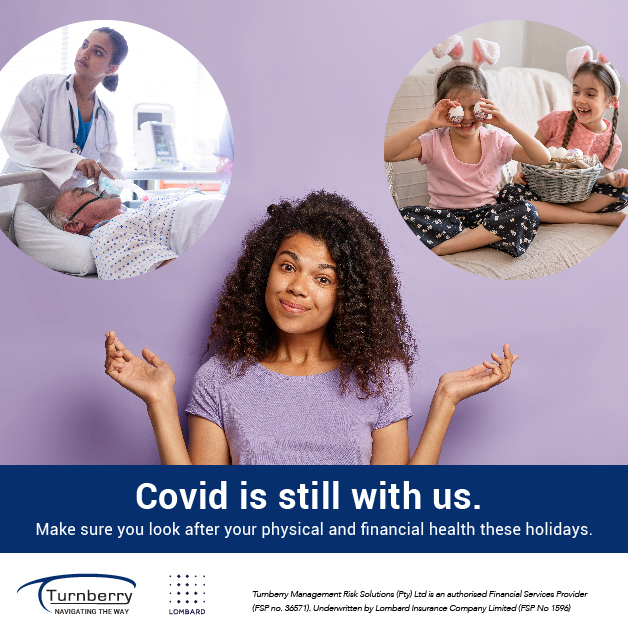
FA News – 4th May 2021
December saw an easing of Covid-19 lockdown restrictions as the holidays approached, and the result was a massive second wave of infections that eclipsed the first.
Now, as we head into yet another holiday season, a third wave is predicted to occur. We have the power to prevent this third wave being even more catastrophic than the first two by staying home, practicing social distancing and following all basic precautions. But physical health is not the only challenge – we need to make sure our financial wellbeing is taken care of. At a time when money is tight but there is potential for medical expenses to soar should we become ill, gap cover is more important than ever.
Slowing the spread
As people relax over the holidays, Covid prevention protocols can go out of the window. Super spreader events are one culprit behind spikes in infections, and there have been many examples to prove this. The reality is that it is the responsibility of each and every South African to not contribute to the greater problem.
With only a very small percentage of the population having received vaccinations, we cannot rely on any level of immunity to help counter the spread. The more infections we have, the more lives will be lost, and the more healthcare workers will be put at risk.
Accidents also tend to peak around holidays, with increased traffic on the roads, incidents of drunk driving, and subsequently more accidents, injuries and fatalities. Casualty units also see greater numbers of visitors from accidents and incidents in the home or while people are out and about enjoying various activities. With the healthcare system already burdened, we need to be mindful and responsible not to engage in hazardous activities.
The responsible thing to do
Looking after your physical health, whether this is preventing the spread of Covid or being cautious, is the responsible thing to do. However, health is about more than the physical – you need to look after your financial wellbeing as well. Medical expense shortfalls can cripple you financially, and in the event of death, the debts could be passed on to families, adding stress to already difficult times.
In a life-threatening emergency, conditions may be covered as Prescribed Minimum Benefits (PMBs). However, once you are stable and able to choose a provider, you may be responsible for shortfalls if you are being treated at a hospital that is outside of your medical scheme’s Designated Service Provider (DSP) network. Similarly, with Covid-19, the condition itself is a PMB if treated in hospital, but there are some specific treatments and tests that are not covered by PMB benefit, which families would be liable for.
It’s also important to remember that accidents and illnesses other than Covid will keep happening. Having gap cover in place is the financially responsible thing to do. Gap Cover helps to avoid medical expense shortfalls from all manner of conditions. It also protects families from the added stress and strain of trying to secure funds they may not have, to cover hospital and doctors’ bills for conditions they could not prevent.
It’s not about you
As of 25 March, at 18:30 only 220 129 healthcare workers had been vaccinated under the Sisonke protocol. Each and every one of those healthcare workers puts their life on the line to provide care to people when they are ill or injured. They need South African citizens to step up and be responsible and slow the spread of Covid-19 to ease the burden on our healthcare system and keep them safe.
While most South Africans who have been or will be infected will recover, many thousands have not and will not. Those with comorbidities like cancer and other immunocompromised individuals may survive Covid-19 only to succumb to their underlying condition. Those who are hospitalised for long periods are isolated and they may well pass away having never seen their loved ones again. In addition, recovery does not look the same for everyone. Many survivors are left with ongoing physical health problems as well as mental issues like Post-Traumatic Stress Disorder (PTSD) and anxiety.
When it comes to slowing the spread of Covid-19, in most cases, it’s not about you. It’s about your immune-compromised friend, your elderly relative, and the pulmonologist at the hospital who has already survived an infection once and carries on working to try and help others do the same. Or maybe it is about you, because you are one of those affected. These holidays, do the responsible thing. Stay home, and keep yourself, your loved ones, and maybe even a complete stranger safe.
